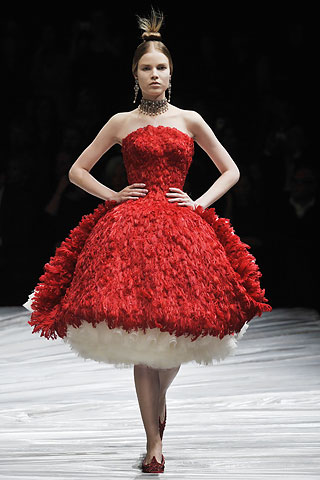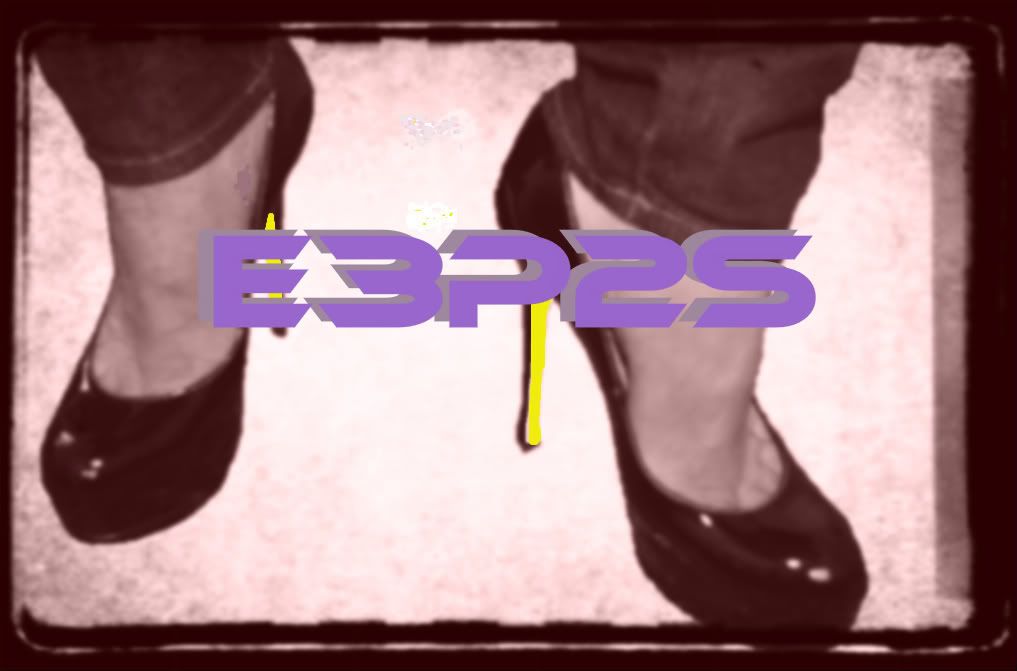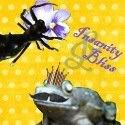No one knows what the body can do. -Spinoza
Monday, February 22, 2010
What Birds Can Teach Us About Interacting With Our Fellow Giant-Human-Creatures-Of-The-Ground Too
Recently a friend visited for an overnight. He'd driven from out of town, and though his home isn't all that far away, it is just far enough that staying a night on our guest bed made the most sense.
The next morning I'd gotten our Rosie bird, a cockatiel, out of her cage to come hang out in the bathroom and start the day by taking a shower with me. This is our usual routine. She perches on the shower curtain rod and preens herself, while I too wash in the water.
Occasionally she'll bow to me, opening her wings and tail while leaning deeply forward. This displays all her lovely feathers, and also shows her comfort with being vulnerable near me. She can't, after all, too easily keep an eye out for predators from the sky if her head is pointing down below her own feet. But it's also a beautiful gesture of cross species trust on her part.
She is, you see, much much smaller than even half of my face, if we're going to compare strict physical size, and so being in a position near me where she can't see all the things I might do to her, or react quickly to them shows she expects me to avoid doing things that could startle or hurt her. So, when she coos at me, and shows her feathers in such a manner, I respond with great accolades of "fancy! fancy bird! so pretty!" etc as a way of reciprocating, showing her how much I appreciate it.
After I complete my shower, and return to the living room to do work (much of my honest to god work is spent online), I'll lay on the couch and she'll continue to hang out in the bathroom for a time. I leave the door open, and then when she's had enough of being in there by herself she flies out and lands on my shoulder. She'll begin a very soft, low cooing, almost like a birdy version of a purr, and kiss at my cheek, and sometimes preen my hair for me. Again, here I am a giant to her, and she is showing she's completely comfortable, and feels close enough to me she wants to express affection.
The morning my friend was visiting, Rosie and I had our shower, as described above. And then I'd left the door open and wandered out to the living room as usual. She was still on the shower rod, as a result. With a friend over, however, instead of me sitting on the couch doing work, my friend and I were chatting with each other. It was Sunday after all, a day of rest and all that. At some point he needed to use the washroom, as we say in Canada, the bathroom as we say in the United States, or the W.C., if you'd like to go British with it. (Anyone wanna post names for the toilette from other countries in the comments section?) A few mere moments later he emerged from the bathroom, and muttered "ornery bird!" and kind of looked back at her as he left the washroom to return to the living room. It had turned out he'd tried to pet her, but she was not having it.
Birds this size, by the way, are notorious for NOT LIKING HANDS. No hands! So, the very thing we're used to thinking house pets want--to be petted--is exactly what pet birds DO NOT want. Hands are scary. More on this in a minute. (In a very real sense, we're used to thinking house pets are for petting because many of us are oriented towards the idea of furry creatures, rather than feathered ones. Think on how in the States people often ask "Are you a dog, or a cat person?" And notice how there are only two, remarkably similar actually, options. I tend to respond, "I'm a bird person" even though this isn't one of the explicitly stated options. People often respond, "Oh! I don't understand why someone would want a bird." What they're really saying, I think, is that they don't understand birds, and so, as a result, don't understand why someone would want a bird.)
So, getting back to the ornery bird story:
The thing about our bathroom is that you can use the toilet without being anywhere near the areas of the shower-curtain rod Rosie bird would be inclined to hang out. Still, if you're tall she could feel threatened because there you'd be up higher than she is. Birds, you see, want to be as high up in a room as they can to feel safe. Death comes from the sky (flying predators) if you're a small bird, you see. It also comes from the ground (stalking predators, like cats), of course, but it's easier to fly UP away from ground hunters, so birds tend to sit up high, and keep an eye on the sky. If they're up near the ceiling of a room, then, they relax because there simply isn't anything higher than them. If you stand above a bird, however, you're gonna make them nervous because there you are standing in the "death comes from above" position. So, if you want to interact in a friendly manner with a bird, one of the things you can do is position your face below them so that they can see you aren't in that "death from above" postion.
The other thing about birds like our Rosie is that your hand, whoever you are, is (1) as big as she is, and (2) made up of what look remarkably just like FIVE SNAKES. OH MY GOD! FIVE SNAKES! I mean, honestly, try this: start by waving all five fingers on one hand all at once, then keep those fingers waving and aim them directly at your own face, quite close to it but without touching it. See how sort of visually uncomfortable that is? If you're a bird and that thing comes at you, it's (1) huge (that is, it could surround you entirely), and (2) there are too many parts of it to fight off all at once. You can attack one finger, but then there are still more. A five against one sort of death match is never fair. Death comes from five snakes at once, so to speak.
So, here's (one of) the thing(s) I am saying:
It isn't that domesticated birds, I don't think, are radically afraid of death, or searching for its possibility all the time. It's just that some of these things that we as giant-human-creatures-of-the-ground take for granted a lot of the time, look like attack! attack! to these tiny-little-featured-creatures-of-perch-and-sky (domesticated birds). We just don't tend to push ourselves to think in the terms that other species (in this case, birds) live within. To put it another way, we tend to take for granted what the world looks like for us, failing, therefore, to see how the world looks very different to creatures with different needs. Failing, to even recognize, then, that they live under differing terms than we do.
So, even though a number of the things here that I've explained about birds make it sound like the bird is searching for sources of death all the time. My point is actually that many of the behaviors we do without thinking look like what a source of death would be for a bird. So, there we are just trying to interact with this animal (a domesticated bird) and there it is trying to fight us off. Then we go and claim the bird is cranky (or, as my friend said, ornery). Rather than seeing that our own attempt to interact with the animal triggered it's fight-off-death response. You know, because it's attacking our hand, or something like that.
Notice though how use of the word ornery isn't only misunderstanding the bird itself, it's actually profoundly misunderstanding the entire situation. That is, if a bird really is just ornery, it is a bird that has a mood, or moods. But actually, the behavior of the bird that has caused us to name it "ornery", in this example, is actually a self defense behavior. So, by acting as though the bird is just "moody" we've failed to see that we're acting in a situation that is life and death for the creature we're interacting with. We're, in fact, failing to see our own participation in what is actually, then, quite a serious situation -- a situation in which we are actually threatening another creature with the possibility of death, or attack. Admittedly, we don't mean to be doing this. But what we mean to be doing here isn't adequate to what we are actually doing. What we are actually doing is trying to interact with a creature we don't understand, and by failing to also understand the implications of our own behavior, we don't realize that we are threatening the safety of that other creature. We are, in fact, so blind to our own role in this interaction we go and just label the other creature moody, rather than appropriately defending itself.
In what I'm describing here, while being entirely well-intentioned, in fact, we're actually making the bird think we're trying to attack it--by doing something like moving our hand towards its tiny little body, for example--and so OF COURSE it is defending itself by hissing and showing us its open beak. That isn't an ornery bird. That's a scared and will-defend-itself bird.
Many of us are quite used to thinking in terms of dogs, or cats, however. And, after a time, we come to recognize, just through the furry creature's behavior whether it's scared, hungry, sleepy, cuddly, etc. We can see what the animal is wanting, expressing, or "feeling" (loosely speaking) because we understand its behavioral cues. We begin to be able to distinguish between our read of the animal, and the animal's own needs so that we eventually become more able to distinguish between calling a cat "cranky" or "needy" and knowing that it's doing certain things because it wants to be fed, for example.
Here's the thing (or, rather, again one of the things). Many of us don't actually understand how to read birds. We're not used to being around them, or we don't have them as pets. So how birds behave, and communicate, or interact, is a mystery to us. But, maybe we're curious. Or, maybe we know our friend cares about the animal, so we're trying to be nice. And then, though we don't know how to, we try to interact with the bird and it hisses at us. So, still not knowing what to do, we walk away, and all we've learned is that we make birds hiss. But sometimes we interpret that situation as THE BIRD ITSELF being cranky. Why else would a bird hiss, right? When, in the kind of case that I'm describing, it's actually not THE BIRD that is ornery at all, but instead our behavior that time that made the bird need to defend itself. Rosie bird, as I've said, is an incredibly affectionate bird that likes to be close to people she is comfortable with. But she'll defend herself when herself needs to be defended. Of course.
I'm taking so much time to spell this out, because I think there is an interesting correlation here with how we sometimes interact with our own fellow giant-human-creatures-of-the-ground. That is, just like we sometimes project onto a bird the interpretation that it is ornery, when actually we just fail to understand how to appropriately interact with a bird, we sometimes project onto other people an idea of their mood, their behavior, or, in short "where they're coming from" without adequately understanding just that--where THEY are coming from.
That is, we very often fail to understand each other, and focus just on the idea that we had good intentions in trying whatever it was we tried to do, and we didn't get the response *we wanted* in trying that well-intentioned thing. But in not paying close enough attention to the cues the other person really is, in a sense, giving us, we fail to actually understand our own role in the situation we're operating within. Instead, because things didn't turn out how we might have planned, or wanted them to, we overlook that we simply didn't well enough understand the situation we were in, and project our lack of understanding onto the other person as a failure in them. They're ornery, for example.
Let's be clear, sometimes people really are ornery. But a lot of the time what we take as them being ornery might be that they're suddenly in a situation where five snakes are on attack! Or, you know, the more human equivalent of that, like they have a deadline, they're trying to just quickly run this one errand, they're dead set on getting out the door of this shop they're in, and you walk in all happy trying to hug them and say hi! It's nice that you mean to greet them and wish them well, and hear how they're doing. But how they're actually doing is late. They're not trying to be rude, or tell you off, or even get away from you. They're trying to meet the deadline, get their errand done, and do it all before that kid birthday party they're supposed to host in an hour. You know, or whatever it is that's pressing on them.
To be clear on how to deal with such situations, the example of a person in a rush might not be the time to do something like slow them down to better understand them in that moment. They've gotta get a move on, after all. Instead, the point of this whole "talking about" that I'm doing right now is something more along the lines of us better recognizing ourselves, and how we interact with others ourselves, and what we take for granted that leads to our projecting our own feelings onto someone else. What we intend for a situation isn't enough to determine either (a) how that situation will go, or even (b) what that situation is really about. Our intentions simply aren't enough to make sense of a situation. To see better what kind of a person we really are in the world, we have to do more work to think past just what we intend, and try to better understand the situations we actually find ourselves in. That means too, then, doing more work to read things like the behavioral cues others really are giving us, if we pay attention.
Our intentions, then, can't be enough for us to judge ourselves by either. That is, intending something good in a situation, isn't adequate to claiming we did the best we could, or even that we're a good person. It turns out we have to work to do more than just think about what we meant to happen. We have to learn to see more of the situation itself more clearly, and the terms the other person is living within too.
That is, we need to notice what we intend, but also push ourselves to see past those intentions to the bigger world of the situations we live through and within. That is, to pay better attention to that other person, or to notice what causes that bird to get defensive.
Cause, the thing is, if we learn to see more clearly in this kind of way, we might be able to walk into a situation where we have to pee in a room with a bird, knowing we don't really understand birds, but we kinda want to interact with that bird. So, we start to raise our hand to pet it, and the bird then starts to react in a way that doesn't look friendly. So, we, quite simply, lower our hand back down again, and try something different, like just talk to the bird. In that moment, we've tried and learned something. We've reached out to interact with another being (a creature-of-perch-and-sky in this case) and we've succeeded at letting them do some of the work at determining the terms of that interaction.
We've been open to the cues they'll show us for how that interaction must go to genuinely include us both. Or, in more human terms-- we're walking into a store and see a friend we want to greet. But knowing our best intentions are positive for them, and for ourselves both, we pay attention not just to what we want, but to the cues they're giving us too. Their cues say they're in a rush. So we smile, wish them well, and give them room to pass. In that moment, we've fulfilled those good intentions--we've succeeded at letting them determine with us the terms of our interaction, thus genuinely wishing THEM well (rather than just acting based on what we want) in a way that works for us too.
Subscribe to:
Post Comments (Atom)














No comments:
Post a Comment